
THREAD: trumps auto tarifs ignite trade...
LifeLine™ Media threads use our sophisticated algorithms to construct a thread around any topic you want, providing you with a detailed timeline, analysis, and related articles.
News Timeline


TRUMP’S Bold Auto Tarifs Spark Fury And Hope In Global CAR Market
— President Trump has announced a 25% tariff on imported cars and parts, starting in April. He says this move will boost American car makers and bring jobs back to the U.S.
Some experts warn these tariffs could raise prices for buyers and shake up car production. The U.S. brought in about eight million foreign cars last year, making up half of all sales.
Financial analysts say the tariffs might lower stock values by 5%. They also worry about possible inflation, job losses, and even a recession if trade fights continue.
India is asking for an exemption to protect its $66 billion export business with America. The Trump team is using these tariffs as leverage while working on new trade deals that could change the global market and America’s future economy.
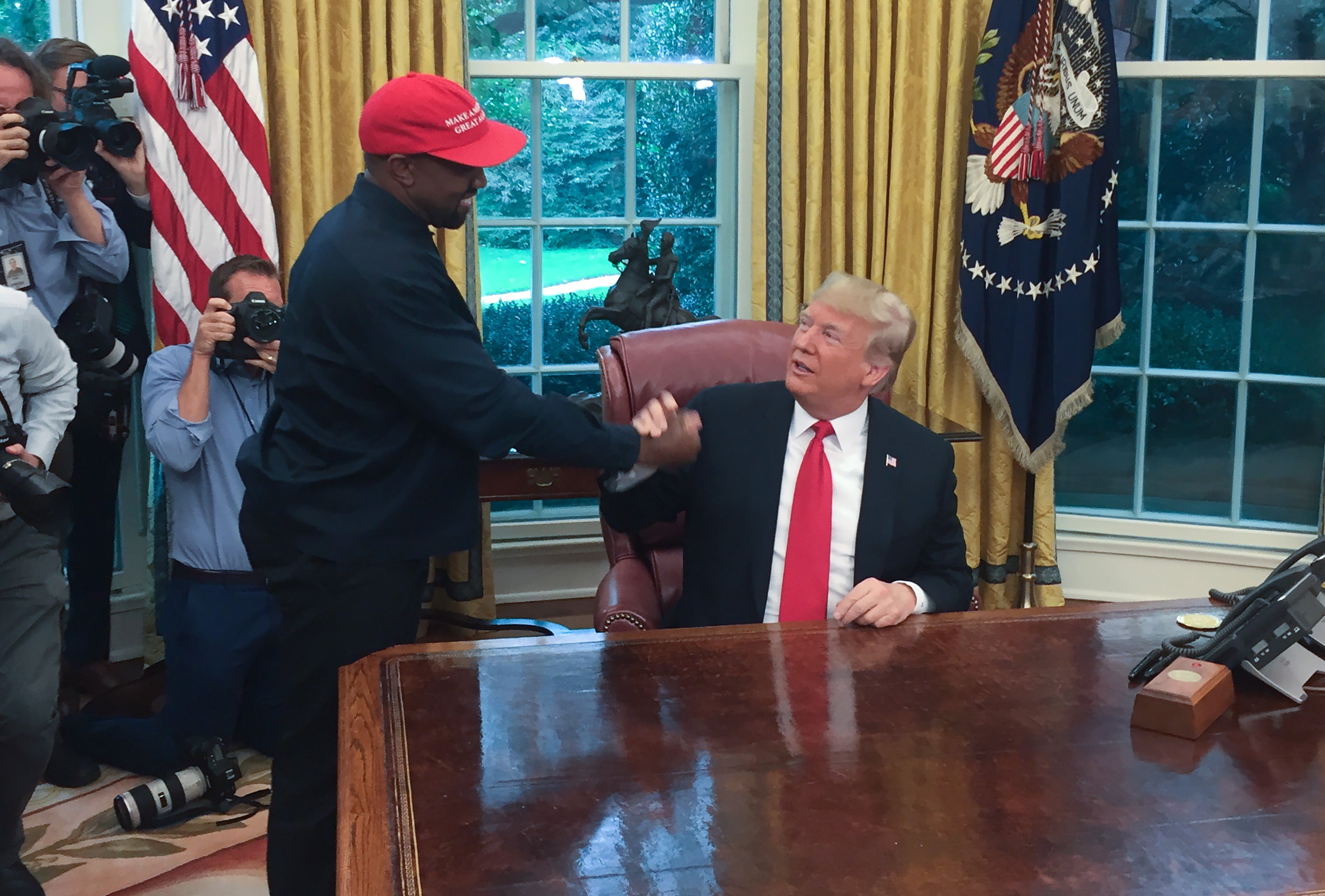
TRUMP’S Shocking Pardons Ignite Outrage as Hoover Walks Free
— Former President Donald Trump has commuted the sentence of Larry Hoover, a notorious Chicago gang leader serving life behind bars. This bold move has set off heated debate about public safety and justice. Many prosecutors say Hoover never gave up his gang ties, raising fears about rising crime in Chicago and other cities.
Trump’s wave of pardons didn’t stop with Hoover. He also granted clemency to over two dozen others, including political allies, rapper NBA YoungBoy, and public figures who backed him or claimed they were targeted for their beliefs. Critics argue this mix of pardons helps Trump’s friends more than everyday Americans.
At the same time, the Trump administration is cracking down on Chinese students by revoking visas as tensions with China grow. Despite pushback over crowded detention centers, immigration enforcement is staying tough.
A federal court just blocked Trump from using emergency powers to slap broad tariffs on imports — a setback for his trade plans. Over Memorial Day weekend, violence spiked in several cities across the country, putting a spotlight on law enforcement struggles and concerns about keeping Americans safe.
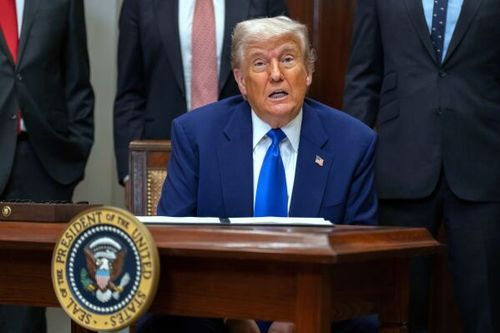
TRUMP Faces FIERCE Backlash as Congress Slams His Bold Trade Threats
— Congress is coming after President Trump for his tough talk on tariffs against the European Union and Apple. Lawmakers announced an investigation at the White House, raising alarm on both sides of the aisle. Some say Trump’s timing is suspicious and want talks, not trade fights, with our allies.
Both House and Senate Commerce Committees are now looking into whether Trump’s threats break trade deals or risk national security. Powerful members are pushing for a full review of his trade policies. EU leaders fired back, warning these threats could shake up global markets.
Business groups are worried too. Tech and manufacturing leaders fear a new trade war could hurt jobs here at home if other countries strike back. Experts warn that harsh words can lead to real-world payback from our trading partners.
What Congress decides could change how future presidents handle trade deals — especially as America debates putting its own interests first versus working with other nations. This story is moving fast and will have big effects on U.S. business and foreign policy alike.
SHOCKING ARSON Rocks UK Prime Minister’S Home: Security Fears Ignite
— A suspicious fire tore through Prime Minister Keir Starmer’s London home, leaving the area damaged and forcing police to seal off the neighborhood. Officers moved fast and caught a suspect at the scene.
Authorities have not shared any details about why it happened or who was arrested. The silence has left many people worried and guessing about what really went on.
This event puts a spotlight on political security in Britain. People are asking if leaders are truly safe from targeted attacks with current protections in place.
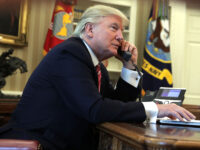
TRUMP’S Bold Warning: EU Faces Painful 50% Trade Tariff Showdown
— President Trump has put the European Union on notice. He warned that if trade talks stall, the EU could get slapped with a massive 50 percent tariff by June 1st. Trump called the EU “very difficult to deal with” and posted on Truth Social that European Commission President Ursula von der Leyen asked him for more time.
Trump agreed to move the deadline back to July 9, 2025. He said it was his “privilege” and promised talks would start soon. Von der Leyen said she had a “good call” with Trump and claimed Europe is ready for fast, strong negotiations.
Right now, U.S. tariffs on European aluminum, cars, and steel can reach up to 25 percent. The Trump team has already made deals with countries like Britain after Brexit but is taking a tougher stand against Brussels.
Treasury Secretary Scott Bessent says Europe’s internal fights make things harder but believes Trump’s tough approach could push them to act. The next move belongs to Brussels as both sides gear up for intense talks.
US BASE EXPLOSIONS Ignite Shock and Fear Over Security Failures
— Explosions shook a major US military base on the East Coast today, setting off alarms across the country. Emergency crews and military officials rushed in to lock down the area and check for damage.
Authorities have not reported any casualties yet. Early reports point to a possible attack or break-in at the base, but details are still secret as federal agents work with local police to control the scene.
This event has sparked fresh worries about national security under current leadership. Many Americans are demanding answers while officials promise updates soon.
— Trump Threatens EU Tariffs. President Trump warns of a 50% tariff on the EU and a 25% smartphone penalty, risking escalation in US-EU trade tensions. The US Treasury plans to phase out the penny by 2026 to cut costs, but the move sparks public backlash amid broader economic shifts.

TRAGIC DC Shooting Rocks Israeli Embassy: Security Fears Ignite
— Two Israeli embassy staff members were shot and killed early this morning in Washington, D.C. Police rushed to the scene, but the motive behind this deadly attack is still a mystery. The victims’ names have not been released yet.
Officers quickly locked down the area around the embassy. Security alerts are now active across the city. The FBI and local police are working together to track down those responsible for this shocking act.
This violent event comes as tensions over Middle East conflicts continue to climb, sparking fresh worries about safety for diplomats in America. Law enforcement says their investigation is ongoing as they search for answers and suspects.

UK-EU TRADE DEAL Sparks Hope: Bold WIN for British Travelers and Businesses
— The United Kingdom and European Union have agreed on a new trade deal, marking a big step forward after Brexit. The agreement means smoother border checks, easier travel for pets, and less paperwork for food and drink businesses. It also includes a plan to let young people aged 18-30 work or study across borders.
Negotiators finished the deal late Sunday night, just before time ran out. Talks had dragged on for months because of fights over fishing rights and rules.
Soon, British passport holders will get faster eGate access at EU borders. While some parts — like youth mobility — are still being worked out, the deal should help steady economic ties.
Conservatives in Britain have called for real solutions instead of endless arguments. This agreement could finally bring much-needed stability between the UK and EU after years of back-and-forth.

TRUMP’S Bold Farmer AID Plan Ignites Hope And Fear In Trade WAR Storm
— The Trump administration is looking at giving direct help to American farmers as trade fights heat up. President Trump’s new tariffs, like the 25% tax on imported cars, have made some worry about payback from other countries. Still, Trump stands firm and tells Americans to buy homegrown cars instead of imports.
Stock markets took a hit after the tariff news. Global shares dropped, and JPMorgan now says there’s a 40% chance of recession. UBS cut its outlook for the S&P 500 but still thinks stocks could rise by year’s end.
Some critics are upset with the White House for going after law firms that file “frivolous” lawsuits against the government. This has sparked debate over whether everyday Americans can still take legal action when they feel wronged.
At the same time, businesses that depend on immigrant workers want changes in immigration laws as deportations go up. Chinese tech investments and efforts by some groups to calm global tensions show how closely politics and business are tied together today.

— Mexican Navy Ship Collides with Brooklyn Bridge, Killing Two and Causing Structural Damage The Cuauhtemoc vessel struck the bridge while reversing at high speed, raising safety concerns and sparking public outrage amid ongoing trade tensions and market instability

— Mexican Navy Ship Collides with Brooklyn Bridge The incident causes deaths, structural damage, and raises safety concerns amid global trade tensions

MEXICAN NAVY Ship Tragedy Sparks Bridge Panic And Trade Fears
— A Mexican Navy training ship, the Cuauhtemoc, slammed into the Brooklyn Bridge on May 18 while reversing at high speed. Two crew members died and 19 were hurt. The ship lost its masts and damaged the bridge, raising serious questions about safety near key U.S. landmarks.
Officials have started an urgent investigation to figure out what went wrong. Many Americans are angry and wonder how a massive vessel could get so close to such an important bridge without better controls.
This disaster comes as global trade tensions heat up. U.S. tariffs on steel, aluminum, and cars are already causing worry about rising prices and shaky markets.
Now, there’s a growing call for tougher rules on ships near American cities — and stronger steps to protect our critical infrastructure from future accidents or threats.
— Mexican Navy Vessel Collides with Brooklyn Bridge The Cuauhtemoc training ship hit the bridge, killing two crew members and damaging the structure, prompting safety investigations amid public outrage; meanwhile, US tariffs on steel, aluminum, and autos are fueling market volatility and escalating global trade tensions
— Mexican Navy Ship Collides with Brooklyn Bridge The Cuauhtemoc vessel hit the bridge while reversing at high speed, killing two and damaging the structure, prompting safety concerns amid global trade tensions
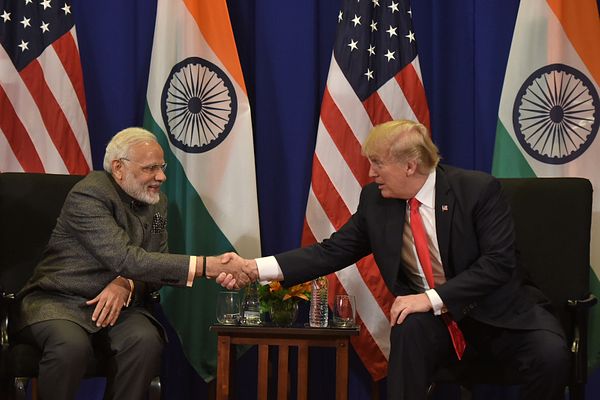
US-INDIA TRADE Deal Shock: Massive Tariff Slash Could Change Everything
— The United States and India are close to a trade deal that could end years of bitter tariff fights. Sources say the agreement would cut India’s average tariffs on American goods from 13 percent down to just 4 percent. Right now, India charges much higher tariffs than the U.S.—17 percent compared to America’s 3.3 percent, according to global data.
India is offering zero import duties on some U.S. products like airplanes, cars, and medical devices. In return, it wants better access for its own exports — such as jewelry and clothing — in American markets. Indian leaders also hope for more chances in high-tech fields like computer chips and medicine.
The Trump administration had raised tariffs on Indian goods because of a $45 billion trade gap favoring India but paused those hikes while talks continued. Both sides are now looking at “zero-for-zero” deals in key areas like steel and medicine, with the U.S. pressing India to fix strict quality rules that have blocked American companies.
Experts say time is running out before temporary tariff breaks expire. If this deal goes through, it could settle old disputes and open major investment doors for both countries — just as they compete with other nations for future U.S. trade deals.
PRISON BREAK Panic, Strike Chaos, and TAX Bill Turmoil Shake America’S Core
— A daring prison break in New Orleans has put nine dangerous inmates on the streets. Ten escaped with help from inside the jail. Police are working around the clock to catch them. This disaster is sparking fresh doubts about how safe our prisons really are.
Over in New Jersey, train engineers walked off the job, stranding 350,000 commuters. The strike shows how fragile our daily routines can be when unions flex their muscles. With no deal in sight, families and businesses are left hanging.
Meanwhile, Charter and Cox Communications plan a $34.5 billion merger that could change cable TV forever. As more people ditch cable for streaming, big companies are scrambling to stay alive.
On Capitol Hill, House Republicans have stalled President Trump’s key tax bill because of party infighting. At the same time, Homeland Security wants 20,000 National Guard troops for border enforcement — a move now under Pentagon review that could affect both security and local economies.
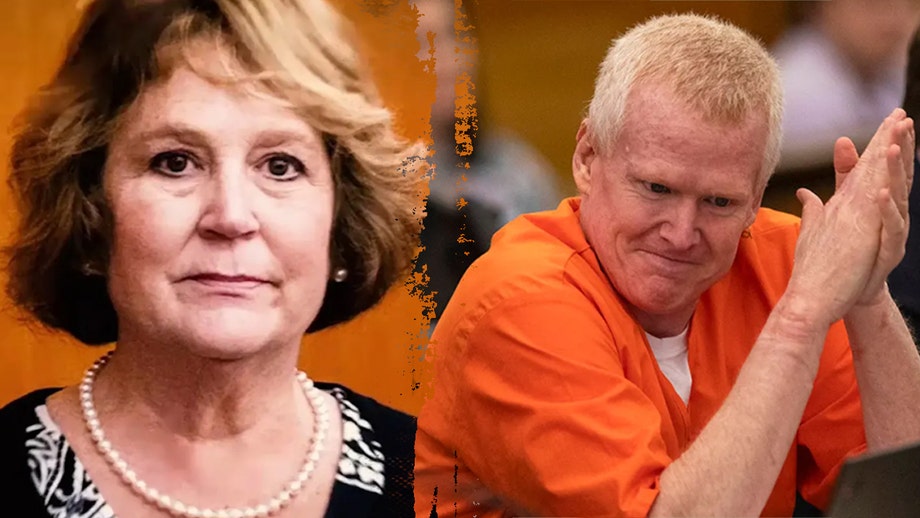
MURDAUGH SHOCK: Court Clerk’S Felony Charges Ignite Fury — But Will It Save HIM?
— Becky Hill, the court clerk from the Alex Murdaugh murder trial, has been hit with felony charges. She’s accused of lying to a Supreme Court justice about sharing sealed evidence and using her job to boost her own book sales. Authorities say she faces perjury, misconduct, and obstruction of justice.
Some people wonder if these charges could help Murdaugh get a new trial. But legal experts say it’s not likely. Former South Carolina Attorney General Charlie Condon told Fox News Digital that Hill’s legal trouble doesn’t support Murdaugh’s case at all.
Earlier, Murdaugh’s lawyers said Hill tried to sway the jury. But police did not charge her with jury tampering this time around.
Murdaugh is still convicted for killing his wife and son in 2021. His lawyers keep fighting for a new trial, but prosecutors insist that nothing Hill did changed the outcome of his case.
US-INDIA TRADE Shock: Trump TAX Bill Turmoil and LIV Golf Losses Rattle Markets
— A new US-India trade deal slashing tariffs could shake up global markets. This agreement is set to boost economic ties and change the game for key industries. While American businesses may find fresh opportunities, some will battle tougher competition from Indian imports.
At the same time, Republicans are split over President Trump’s tax cut bill. The fight has stalled progress in Congress and left voters fed up with Washington’s gridlock. One report says people feel “angry and hopeless.”
LIV Golf’s big money losses have cast doubt on Saudi Arabia’s sports gamble. Investors are now questioning if the league can survive after pouring in so much cash.
America is also facing chaos from a major prison break and strikes across several sectors, adding more stress to an already tense economy. Meanwhile, India’s stock market jumped thanks to new rules and growing industries — even as some areas still struggle to keep up.

US-CHINA TRADE Truce Ignites Hope, But Record Deficit Stings Americans
— The U.S. and China have agreed to a 90-day trade truce, cutting tariffs on each other’s goods. U.S. tariffs on Chinese imports dropped from 145% to 30%. China lowered its own tariffs from 125% down to just 10%. This deal sparked a rally in Asian markets, with Japan’s Nikkei jumping nearly 2%. Car makers like Toyota and Suzuki also saw big gains.
But the good news comes with a warning sign. The U.S. Treasury revealed the trade deficit has hit a record $1.2 trillion. Treasury Secretary Scott Bessent claims “substantial progress” in talks with China but didn’t share many details. Lawmakers and global partners are worried about how this growing deficit could hurt American jobs and businesses.
Western car companies are trying new ways to stay competitive as sales drop in China. Volkswagen is teaming up with Ecarx, a Chinese tech company that builds smart car systems. Mercedes-Benz will use Chinese-made sensors for its vehicles around the world.
Meanwhile, Ford put its financial plans on hold because of uncertainty over President Trump’s tariffs — which could cost them $1.5 billion this year alone. In Japan, regulators plan to give crypto assets legal status as financial products by changing laws next year.
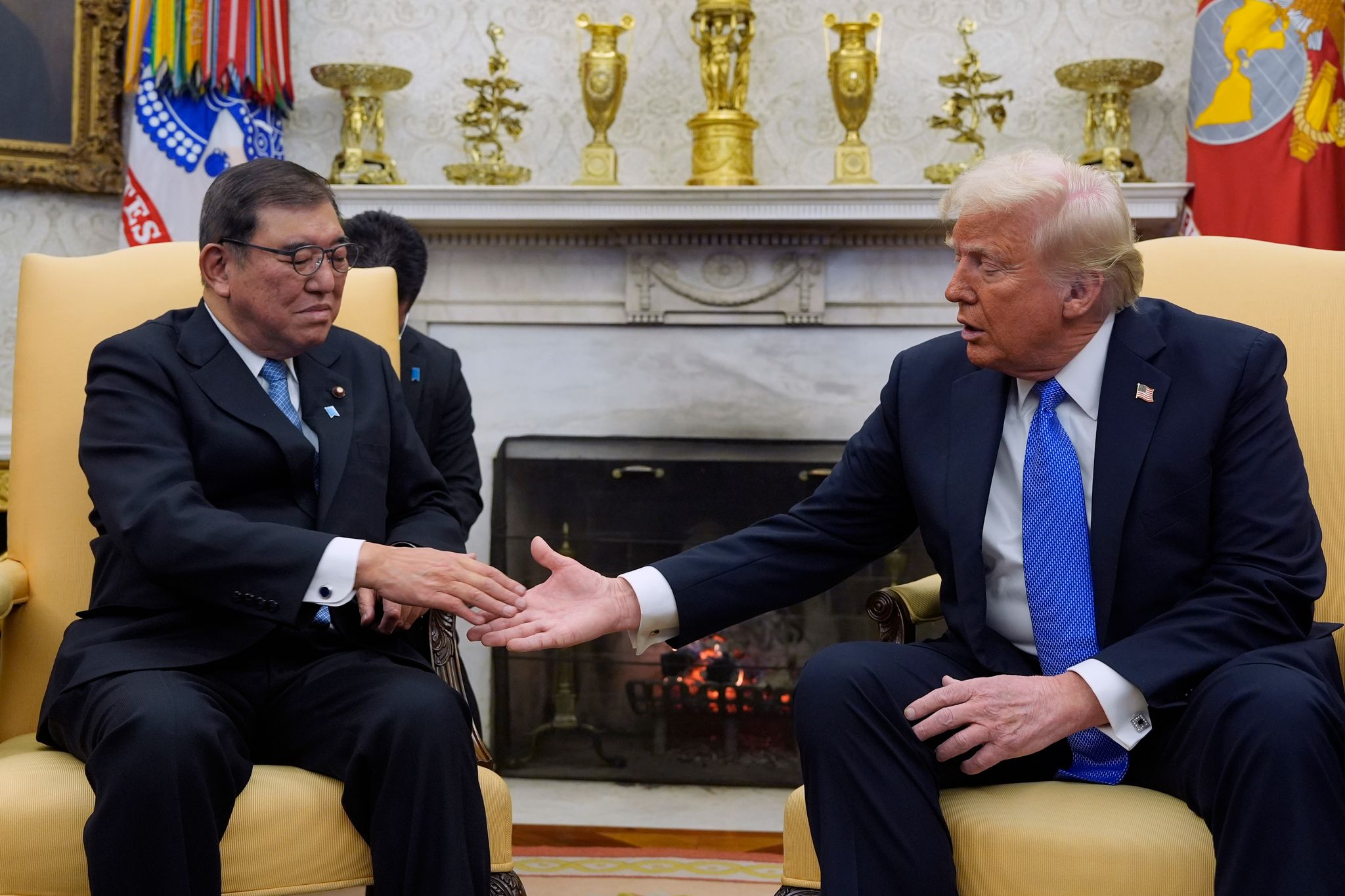
$12 TRILLION TRADE Deficit Shocks America: Urgent Calls for Stronger Policies
— America’s trade deficit just hit a record $1.2 trillion, setting off alarm bells in Washington and around the world. The Treasury says there has been “substantial progress” in recent talks with China, but they aren’t sharing details.
Top U.S. and Chinese officials met in Switzerland to try to ease a tense trade war filled with new tariffs. But this huge deficit shows America is still struggling to balance trade with China and other countries.
This financial milestone is a warning sign for the U.S. economy and our place on the world stage. Lawmakers now face growing pressure to find real answers that protect American jobs and businesses.
Conservatives say it’s time for strong, America-first trade policies. They believe bold action is needed now more than ever to bring back stability and stop foreign competitors from taking advantage of our country.

$12 TRILLION TRADE GAP Shocks America as Trump’S Bold Immigration Move Stirs Fury
— The U.S. trade deficit has hit a record $1.2 trillion, according to the Treasury Department. This massive gap is sparking concern in Washington and among America’s allies. Treasury Secretary Scott Bessent said talks with China showed “substantial progress,” but he offered no details.
The US-China trade war is on pause for now, giving some hope that tensions may cool off between the two countries. In other world news, Hamas released a hostage in a rare move that caught global attention.
Back home, President Trump’s team has launched a tough new immigration crackdown. This shows Trump’s focus on border security and stronger enforcement of our laws.
In New Jersey, Newark Mayor Ras Baraka — a Democrat running for governor — was arrested by federal agents after refusing to leave an ICE detention center during a standoff. His arrest has sparked outrage from his supporters and raised political tensions in the state.

TRUMP’S Trade WAR Truce Sparks Surge in Asian Markets
— Asian stocks soared Tuesday after the U.S. and China agreed to a 90-day pause in their trade war. Both nations announced big tariff cuts. U.S. tariffs on Chinese goods dropped from as high as 145% to 30%. China lowered its tariffs on American products from 125% to just 10%.
This truce gives both sides more time for talks after meeting in Geneva. Experts say the deal was better than expected and calmed investors, but warn President Trump could still change course if needed.
Japan’s Nikkei index jumped nearly 2%. Automakers like Toyota and Suzuki led the gains, while Nissan shares rose too after news about major layoffs tied to restructuring.
South Korea’s Kospi index edged up by 0.2%. Investors are still careful about long-term risks, but for now, markets are responding with relief and optimism.
RECORD TRADE Deficit Ignites Alarm Over Weak US-China Deal
— America’s trade deficit has hit a record $1.2 trillion, sparking fresh fears about the country’s financial health. Treasury Secretary Scott Bessent claimed “substantial progress” in talks with China but failed to share any real details about the agreement made in Geneva.
The U.S. wants China to change its economic habits and shrink the $295 billion gap between the two nations. Many hoped this deal would lower tensions, but doubts are growing because no one knows what was actually agreed on.
Republicans are demanding answers and real results, warning that out-of-control deficits put American jobs and factories at risk. The Biden administration now faces heavy pressure to deliver actual solutions instead of empty promises.
Until Washington releases clear terms, Americans have every right to question if their leaders are truly fighting for U.S. interests in these critical talks with China.
DIDDY TRIAL Shocker, Mayor Arrested, Rikers Seized: America’s Justice System in Turmoil
— Sean “Diddy” Combs is facing a sex trafficking trial in Manhattan. The case includes tough claims and testimony from Cassie Ventura. Diddy’s lawyers admit he lost his temper at times but say he did not break federal laws.
Newark Mayor Ras Baraka was arrested for trespassing while protesting ICE at a detention center. His arrest has sparked heated debate about immigration enforcement and the role of local leaders.
Rapper Tory Lanez was stabbed 14 times in a California prison and is still in the hospital. In New Jersey, two people died after a suspicious house explosion, leading police to open a criminal investigation.
Elsewhere, Illinois convicted a man of hate crime for killing a Palestinian American boy. The Menendez brothers are asking for new sentences in their famous case. Police are also looking into a tragic Mother’s Day murder-suicide by a small-town father. A judge has now taken over New York City’s Rikers Island jail after more violence broke out inside the facility.

US-CHINA TRADE WAR Pause Stuns Markets, Sparks Hope and Fear
— The United States and China agreed to a 90-day pause on tariffs. This move gives American businesses that depend on Chinese goods a break, but many are unsure how long this peace will last. Experts say the main trade problems are still not solved.
In other news, former President Trump’s plan to use a Qatari luxury jet instead of Air Force One is facing backlash. Critics raise concerns about security and possible foreign influence. At the same time, his administration allowed 59 white South Africans to enter as refugees, which caused debate since most refugee resettlements were on hold.
McDonald’s plans to hire 375,000 US workers this summer. This shows strong demand from customers and positive signs for the job market. Meanwhile, House Republicans want $5 billion for private school vouchers — keeping school choice in the spotlight.
Tourism leaders worry about slower revenue as economic worries grow. On a brighter note, new steps against invasive carp could help protect the $7 billion Great Lakes fishing industry from more damage.
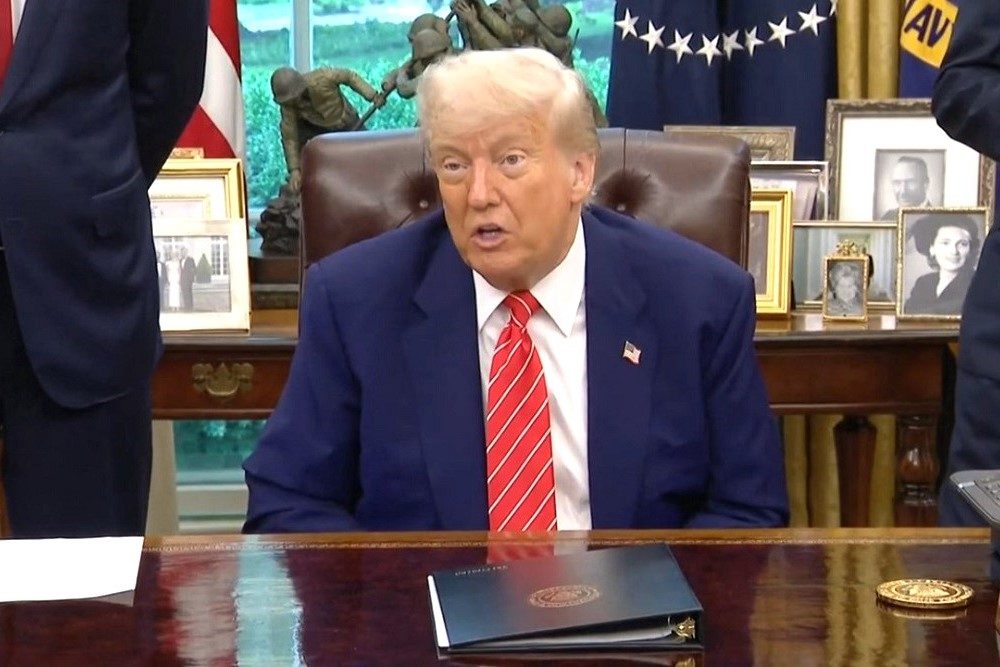
TRUMP’S Trade Deal Delivers Hope And Power To American Farmers
— President Trump’s new TRADE deal with the United Kingdom is being called a huge win for American farmers and ranchers. White House adviser Rollins said, “The deal puts American agriculture first,” pointing to bigger beef exports as a top benefit.
Farmers will likely see higher profits and gain new access to British markets. This agreement is another step in Trump’s “America First” trade plan, which helps U.S. producers compete overseas.
The administration keeps working on deals that put American businesses and workers ahead of foreign interests.
With little other business news on May 8, 2025, this announcement stands out as an economic bright spot for rural America.
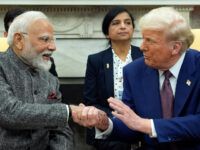
INDIA’S Bold Trade Deal Gamble: Will American Workers Pay the Price?
— India wants a new trade deal to cut tariffs on U.S. goods. The plan would lower the average tariff gap between Indian and American exports from 13 percent to just four percent. India is offering zero duties on some U.S. imports and “preferential access” for nearly 90 percent of American products, including planes, cars, medical gear, and animal feed.
In return, India wants better access for its own exports like jewelry, textiles, chemicals, and farm produce. It also hopes to get advanced U.S. technology in computer chips and medicine. Right now, India has a $45.7 billion trade surplus with America.
The Trump administration has called out this huge trade gap as unfair to American workers and businesses. Last month it threatened high tariffs on Indian goods but paused them for 90 days while talks continue.
U.S. officials want India to ease its tough rules on imported medical devices and chemicals that block American companies from selling there. Both countries are under pressure to reach a deal before time runs out — one that could finally tackle years of unfair trading practices against America’s interests.
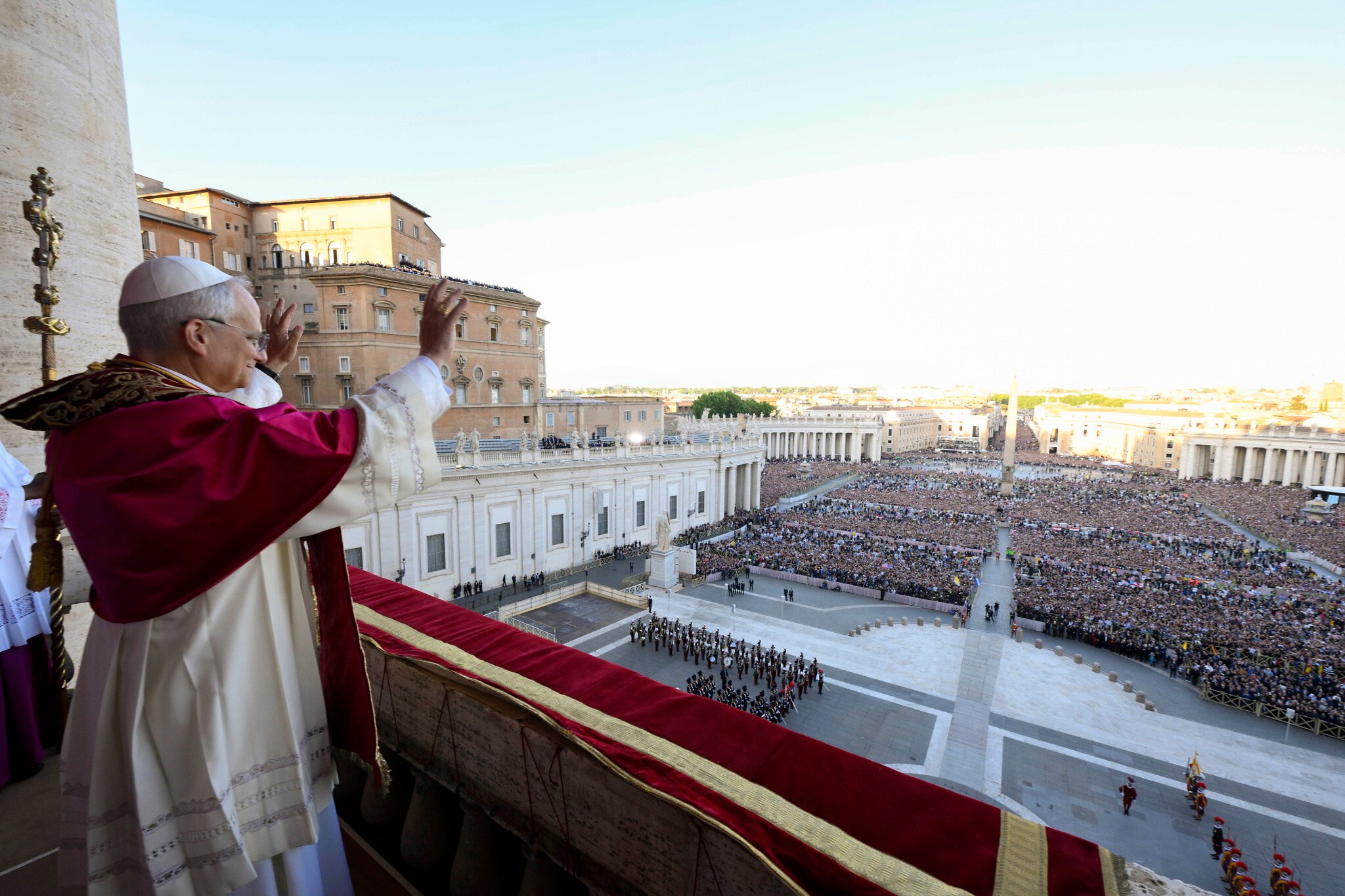
INDIA’S Trade Demands Spark Fury as First American Pope Stirs Hope
— India is pushing for big tariff cuts on American products. Their goal? Shrink the trade gap with the U.S. from 13 percent to just four percent. If approved, this would remove duties on planes, cars, and medical gear — opening almost all of India’s market to American goods. But U.S. exporters might face new rules in exchange.
In Rome, history was made as Cardinal Robert Francis Prevost became Pope Leo XIV — the first American-born Pope ever. His election comes during a time of global unrest and fresh calls for peace in places like Kashmir.
Old conflicts are still simmering around the world. The Israel-Palestine fight and tensions in Kashmir continue with no major changes today.
These events show our world is facing old problems but also seeing big changes that could shape our future.

INDIA’S Bold Trade Demand: Will Americans PAY the Price?
— India wants to cut tariffs on American products, slashing the gap with the U.S. from 13 percent down to just four percent. This plan would drop duties on things like planes, cars, and medical equipment to zero. Nearly 90 percent of American goods could get easier access into India.
But there’s a catch. In return, India wants its jewelry, textiles, chemicals, and farm goods to flow more freely into America. They’re also asking for more chances to get U.S. technology in areas like computer chips and artificial intelligence.
Right now, India enjoys a $45.7 billion trade surplus with the United States — a number President Trump has called unfair in the past. His administration put tough tariffs on Indian goods but paused them for 90 days last month. Now that deadline is coming up fast.
The U.S., for its part, wants India to loosen strict rules that hurt American companies selling medical devices and chemicals there. Both countries need each other — India wants investment while America fights for fairer deals — but who will come out ahead if this deal goes through?

$18 BILLION Tariffs SHOCK China: Biden’s Risky Trade WAR Hits Home
— The Biden administration just hit China with $18 billion in new tariffs. Officials claim it’s a response to unfair trade from Beijing. This move is supposed to get tough on China, but it could mean higher prices for American families and businesses.
Harvard University is now suing the Trump administration over policy disagreements. The details are still coming out, but this shows how elite schools keep fighting against conservative leaders. Many on the right say Harvard pushes a leftist agenda.
World leaders also released a statement about using artificial intelligence in war. They want rules to control AI and keep things safe as technology gets more powerful in the military.
All these stories show how Washington is battling over trade, education, and national security — issues that matter for every American household.
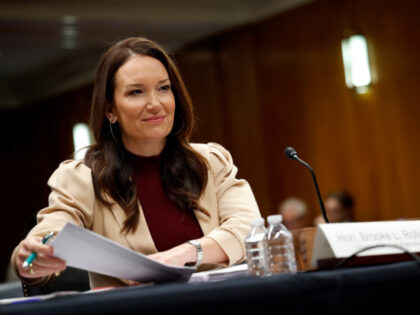
TRUMP’S Trade Deal Delivers Huge WIN for American Farmers
— President Trump’s new trade deal with the UK is being called a big win for American farmers and ranchers. White House adviser Rollins said the agreement puts American agriculture first, especially beef exports. She called U.S. beef “the safest, best quality, and the crown jewel of American agriculture.”
Rollins added that this deal covers more than just beef and ethanol. She said America’s trade team is working hard to open doors for all farm exports. According to Rollins, no other industry has faced as much unfair treatment as U.S. agriculture.
After his “Liberation Day” speech, Trump shared details about the agreement on Truth Social. He said America will gain $6 billion from tariffs and $5 billion in new export chances for farmers and ranchers.
The deal also boosts national security by creating a trading zone for aluminum and steel with the UK and protecting medicine supply chains. Trump pointed out that past presidents failed to get such fair deals done for Americans.
FORD’S $15 Billion Loss Shock: Trump-Era Auto Tariffs Spark Industry Fears
— Ford Motor Company has hit pause on its earnings forecast after revealing a stunning $15 billion loss. The company blames tariffs from the Trump years and ongoing trade fights for the huge setback. Ford also warns that if these policies stay in place, the entire U.S. auto industry could face over $100 billion in extra costs.
To fight back, Ford tried rerouting vehicles through Canada, which saved about $1 billion. Still, there’s a lot of uncertainty ahead. This news comes as the Federal Reserve keeps interest rates steady and points to trade disputes as a big economic risk.
Industry experts say Ford’s move is a warning sign for all of American manufacturing. It raises tough questions about profits and stability for other car makers too.
No one knows yet how bad things will get, but Ford’s losses are shining a light on growing dangers for U.S. jobs and businesses if these tariffs stick around.

UK-INDIA Trade Deal IGNITES Hope for Stronger Post-Brexit Future
— The United Kingdom and India have signed a new trade deal after years of talks. Leaders from both countries are calling it a “landmark” agreement. The deal will cut tariffs, open markets, and bring the two nations closer together.
This is a big win for Britain as it looks to build new partnerships outside the European Union. The agreement covers things like digital trade, property rights, and fair business rules. Industries such as cars, medicine, clothing, and tech are set to gain.
Business leaders in both countries say this deal will create jobs and attract more investment. They see it as a chance for fresh growth on both sides.
Experts believe this move helps the UK shift its trade focus toward fast-growing markets like India. It could also shape how Britain makes deals with other countries in the future.

INDIA’S Desperate Gamble: US Trade Deal Could Save Billions from Painful Tarif F Hike
— India is racing to strike a trade deal with the United States before a 90-day tariff break runs out. If they fail, steep new tariffs could hit Indian exports hard. The plan would cut India’s average tariffs from 17 percent down to nearly America’s much lower 3.3 percent rate.
The proposed agreement gives the U.S. big wins: India would drop duties on some American goods and open its market wider for almost 90 percent of U.S. imports, like cars, planes, and medical devices. In exchange, India wants easier access for its own products — such as jewelry and textiles — and hopes to get more advanced technology from America.
President Trump’s team has blasted India’s $45.7 billion trade surplus with the U.S., calling it unfair competition. They’ve warned that if no deal is reached soon, heavy new tariffs will slam Indian exports.
Experts say India still shields its home industries but needs this deal fast to boost sales abroad and attract investment for growth. Both sides are under pressure as the deadline gets closer by the day.

FORD’S $15 Billion Trade WAR Shock: How Trump’s Tough Tariffs Rattled the Auto Giant
— Ford Motor Company just hit the brakes on its earnings forecast. The company says tariffs from President Trump’s trade war could cost Ford a whopping $15 billion. Profits have already dropped 64% in the first quarter, and Ford blames these tariffs for most of the pain. Other carmakers may face over $100 billion in extra costs too.
To dodge some of these fees, Ford started sending cars from Mexico to Canada using special bond carriers. This helps avoid certain tariffs but doesn’t solve everything. By suspending its guidance, Ford is telling investors things are shaky and uncertain.
The Federal Reserve chose not to raise interest rates this time. Leaders pointed to risks from trade fights and older tariff rules as reasons for their caution. Big banks like Goldman Sachs also warned about possible trouble ahead for Wall Street.
There is some good news for global trade, though. A fresh deal between the U.S. and UK will remove steel and aluminum tariffs while cutting car taxes down to 10%. This agreement — first set up under President Trump — could help cool off some tensions even as other problems remain unsolved.
FORD’S Shocking Loss: Tariffs Deliver $15 Billion Blow to Auto Giant
— Ford Motor Company just took a huge hit—$15 billion lost, all thanks to tariffs. The company has now suspended its financial outlook for the year. Ford says these trade fights, many started under President Trump, are costing not just them but could slam the whole U.S. auto industry with over $100 billion in extra costs if things don’t change soon.
The Federal Reserve decided not to raise interest rates this time. They say it’s because of all the uncertainty from tariffs and global trade battles. This move caught Wall Street off guard and left some investors worried about what comes next.
There is one bright spot: The U.S. government has lifted tariffs on UK steel and aluminum and cut car tariffs down to 10%. This new deal was worked out between President Trump’s team and UK Prime Minister Keir Starmer.
These events show how much trade policy matters for American jobs and businesses. Car makers are feeling squeezed while leaders try to steer through a risky economic moment.

FED SHOCKS Wall Street: Trump’S Trade Fight Sparks Market Jitters
— The Federal Reserve decided to keep interest rates the same on May 8, 2025. Officials said they are worried about the uncertainty caused by President Trump’s tough trade policies and tariffs. They want to see how inflation and the economy respond before making any changes.
Goldman Sachs warned that U.S. stocks could fall if tariffs stay in place or get worse. The recent rise in the S&P 500 might not last unless there is a clear move away from tariffs without hurting the economy.
In April, a short-term break from new tariffs gave markets a small boost, but investors are still uneasy about what comes next. The Fed says it will keep watching economic data closely as it deals with these challenges.
Right now, many on Wall Street want clearer answers from the White House about future trade moves. Until then, the Fed is focused on keeping prices steady and protecting American jobs as Trump sticks to his America First plan.
GOLDMAN SACHS Sounds Alarm: S&P 500 Faces Shock From Trump-ERA Trade Fight
— Goldman Sachs is warning that the recent jump in the S&P 500 may not last. The bank says new trade tensions under President Trump and signs of a weaker economy are big risks for investors.
Trump’s “Liberation Day” announcement has stirred up talk about more U.S.-China tariffs. Goldman Sachs questions if the market can keep rising if these trade fights heat up again.
TD Cowen now says there’s a 70% chance that Chinese stocks could be kicked off U.S. exchanges, thanks to ongoing pressure from Trump’s team. This adds even more worry for investors as trade rules keep changing fast.
These warnings show how quickly things can shift on Wall Street when leaders make bold moves and economic data sends mixed signals. Investors are watching closely to see if tariffs will cause real trouble — or if relief is on the way soon.

FED’S Bold Move Stuns Wall Street: Trump’S Trade Fight Ignites Fear And Hope
— Wall Street took a wild ride after the FEDERAL RESERVE made its latest move and President Trump doubled down on tariffs. Investors were left uneasy. Goldman Sachs warned the S&P 500 could drop even more if trade fights get worse. UBS also lowered its forecast, showing growing worry about where things are headed.
The S&P 500’s longest winning streak in twenty years came to an end as traders feared new tariffs could hurt economic growth and profits. Some industries, like media and film, are especially nervous about possible tariffs on foreign movies, which has sparked debate over American jobs and creative freedom.
Treasury Secretary Scott Bessent tried to calm everyone down by saying Trump’s policies — tariffs, tax cuts, and cutting red tape — are meant to help America in the long run, even if things feel shaky now. The White House says these steps will make U.S. businesses stronger against unfair competition from other countries.
As markets react to these changes, people are split on whether tough trade rules will help or hurt in the end. Many conservatives believe Trump is finally standing up for American workers who have been ignored for too long by global deals that put them last.;
UPS LAYOFFS Spark Fear: American Jobs At Risk From Trade Shock
— UPS just announced it will lay off 20,000 workers and shut down 73 buildings. The company blames falling package numbers and new tariffs for the cuts. UPS hopes to save $35 billion as Amazon sends fewer shipments after recent trade changes.
Amazon is also under stress. Many sellers are piling up extra inventory to avoid shipping delays, but this is only a short-term fix. Even Amazon’s cloud service isn’t doing as well as some of its competitors.
Other big names like McDonald’s and General Motors have warned that sales could drop because of tariff worries. Chinese shopping app Temu is now trying to work with more American sellers to get around these rules.
In retail news, Kohl’s fired CEO Ashley Buchanan over business deals tied to his girlfriend. These changes show how trade policies can shake up everything from shipping companies to major retailers across America.
US MARKETS SHAKEN: GDP Slump and Trump’S Tough Trade Moves Rattle Investors
— Wall Street had a rocky day. The Dow Jones rose by 141 points, but the S&P 500 and Nasdaq barely moved. New data showed the US economy shrank for the first time in three years, and job growth was weaker than hoped. Many investors are watching President Trump’s trade tariffs as inflation reports come out and tech stocks struggle.
Visa stood strong with big profits and a $30 billion stock buyback plan. CEO Ryan McInerney said Visa’s business model is helping them stay steady in these tough times. But airlines and auto parts companies are still feeling the pain from tariffs.
Outside the US, Pakistan’s stock market crashed over fears of military conflict with India, which also hurt Indian markets. In Europe, the central bank raised interest rates even though banks are still shaky after problems at Credit Suisse.
Tech firms like Super Micro Computer reported less demand for AI equipment, while BlackRock invested more in blockchain technology. Experts say investors should be careful with risky stocks right now and look at safer options as global uncertainty grows.
TRUMP’S Auto Import Tarifs Spark Fears And Rattle Markets
— Swiss bank UBS has cut its S&P 500 forecast for the end of 2025 from 6,600 to 6,400 points. This comes after President Trump announced new 25% tariffs on imported cars. Many worry these tariffs could start a bigger global trade fight. Still, UBS’s Mark Haefele says there is “meaningful upside” for U.S. stocks this year.
The new tariffs have shaken investors in the U.S., Asia-Pacific, and Europe. President Trump stands firm on his decision. He said he “couldn’t care less” if automakers raise prices and believes Americans will buy more cars made at home.
Markets worldwide are reacting fast to the news. The MSCI world stock index fell by 4.5% in March — the worst drop since September 2022. JPMorgan’s Bruce Kasman now says there is a 40% chance of a recession.
Investors face more risk as these bold trade moves take effect under Trump’s America-first plan. Wall Street is watching closely to see how this will impact jobs and growth in the months ahead.

TRUMP’S Auto Imports Tarif?F Shock: “Liberation DAY” Ignites Hope For American Jobs
— President Trump just announced a 25% tariff on imported cars and parts, starting April 2, 2025. He calls it “Liberation Day” for American industry. The new tariffs will hit countries like Canada, Mexico, Japan, South Korea, and Germany.
The Trump team says these tariffs will boost U.S. manufacturing and protect American jobs. They believe it’s time to put America first and make foreign countries play by our rules — even if there’s some short-term pain.
Critics warn car prices could rise for families and that supply chains might get disrupted. Some experts say there could be temporary shutdowns in auto plants while companies adjust.
This move is part of Trump’s bigger plan to target steel, aluminum, and other imports from places like China and Venezuela. India may get special treatment as talks continue. Europe is already threatening to fight back over past metal tariffs.
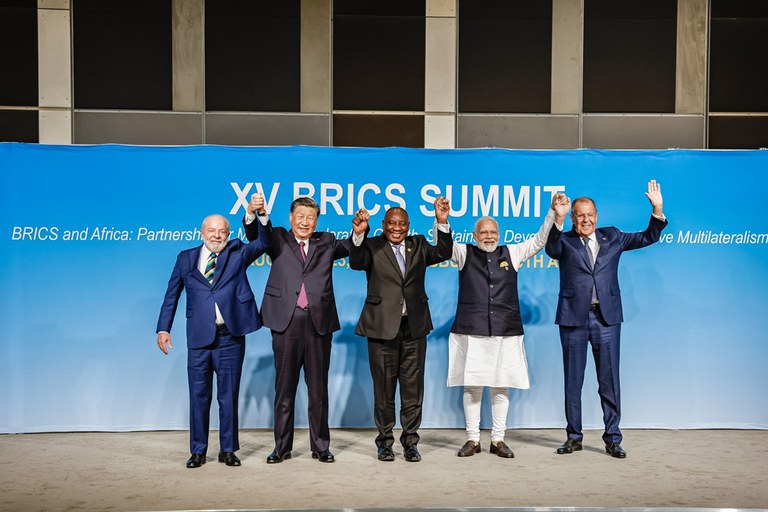
BRAZIL’S Bold Gamble: Global Power Play Ignites Trade WAR Fears
— Brazil is grabbing the world’s attention as it gets ready to host the BRICS summit in July 2025. President Lula da Silva is leading a busy schedule, with plans for a regional meeting in Honduras, an official visit to France, and support for peace talks between Russia and Ukraine during his trip to Portugal.
These moves come at a tense moment. President Trump has warned he may slap new tariffs on Russian oil if there’s no deal over Ukraine. Meanwhile, China is trying to pull Latin America closer through its CELAC forum, hoping to boost its influence in the region.
Brazil’s active diplomacy shows it wants a bigger role on the world stage. The country hopes to act as mediator between major powers like the US, Russia, and China while pushing for stronger ties in Latin America.
With trade wars looming and global tensions rising, Brazil’s bold approach could shape how these big issues play out — or backfire if things go wrong.
:max_bytes(150000):strip_icc()/US10Y_2025-04-03_11-20-02-ed576f9bbbed4ee3924f06b3d31b0b93.png)
TRUMP’S Bold Trade Shift Ignites Stock Surge, Gold Soars, Bitcoin ETF Shatters Records
— U.S. stocks jumped for the third day after President Trump signaled a gentler approach on tariffs, especially with China and car makers. The White House is weighing exemptions for auto parts from China, lifting hopes among investors. Big names like Alphabet and Procter?&?Gamble will report earnings soon.
Gold prices shot up over 1% after a rocky week. Uncertainty around the globe and changing interest rates helped push gold above $3,300 an ounce. Experts say it’s smart to hold gold right now as Trump eases up on both the Fed and China.
The U.S. dollar lost steam when Trump backed away from firing Fed Chair Jerome Powell and hinted at softer trade moves. The Japanese Yen got stronger as talk of a fast US-China deal faded.
In crypto news, BlackRock’s Bitcoin ETF smashed records — pulling in $643 million in one day and winning “Best New ETF.” Trump Media also announced new financial products focused on American-made digital assets and held an invite-only event for top holders of its meme coin.
LE PEN Shocked by Conviction as Trump Unleashes Bold Trade Blitz
— Marine Le Pen, the leader of France’s National Rally party, has been convicted of misusing European Parliament funds. She was given a four-year sentence, with two years suspended and the rest served at home under electronic monitoring. This ruling blocks her from running in France’s 2027 presidential race, ending her hopes for another campaign.
French officials claim there is no political motive behind Le Pen’s conviction. Still, many in France are calling it a political earthquake that could shake up the country’s future.
At the same time, President Donald Trump announced tough new tariffs on foreign cars and auto parts coming into America. The 25% tariffs start April 3 and are part of Trump’s plan to bring back U.S. auto jobs and manufacturing strength.
Trump called April 2 “Liberation Day” for American industry and hinted he might negotiate with other countries after the tariffs begin. The markets have reacted with caution as people debate how these bold moves will affect global trade in the long run.
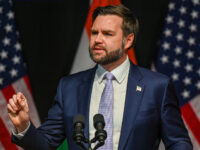
VANCE TORCHES Western Fear — Hails India’S Hope And Trump’S Bold Trade Plan
— Senator J.D. Vance called out the “doom and gloom” attitude he sees in many Western countries. He praised India for its hope and drive, saying it stands in sharp contrast to the fear pushed by environmental alarmists in the West.
Vance said these alarmists want policies that slow down growth and make America more dependent on rivals like China. He warned that this mindset hurts families and weakens our country.
He also backed President Trump’s trade tariffs, saying they would help fix unfair global trade rules. Vance believes Trump’s focus on strong American industry matches Prime Minister Modi’s goals for India.
Vance pointed to growing defense ties between the U.S. and India, such as making Javelin missiles together. He says this teamwork keeps both nations safer while showing strength to those who might threaten us.
TRUMP’S Trade WAR Blasted: Woodward’s Scathing Attack Sparks Outrage
— Liberal reporter Bob Woodward has slammed President Trump’s trade policies, calling his tariffs a “tax on consumers.” He claims Trump uses executive orders for revenge and warns these moves could hurt the economy.
Conservatives are hitting back. They say tariffs protect American jobs from unfair foreign competition. Many believe Woodward is out of touch with what working families face every day.
With the 2024 election heating up, Trump’s trade war is now front and center. Trade policy has become a key issue, forcing voters to choose which path they want for America.
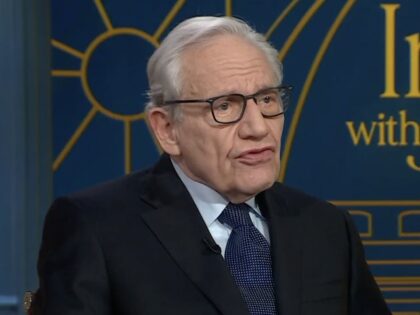
TRUMP’S Trade WAR Ignites Fury: Woodward’s “Vengeance Tour” Slam Backfires
— Bob Woodward, a well-known liberal journalist, slammed Donald Trump’s trade policies this week. He called Trump’s tariffs a “tax on consumers” and claimed they hurt regular Americans. Woodward argued that these moves cause economic trouble and shake people’s trust in the system.
He went further, saying Trump has no real plan. According to Woodward, Trump uses executive orders to go after people and groups he dislikes. He painted it as personal payback instead of smart policy.
Woodward questioned if Trump just wants revenge on his critics. He called this attitude “very troubling” and warned it could damage the country.
But many conservatives see tariffs as a way to protect American jobs from unfair foreign competition. As the 2024 election gets closer, the fight over tariffs is heating up — leaving voters to decide which side will win out.
TRUMP’S Trade WAR Sparks Fierce Backlash: Woodward’s Attacks Ignite Conservative Defense
— Liberal reporter Bob Woodward is blasting Donald Trump’s trade policies. He calls Trump’s tariffs a “tax on consumers” and says they hurt regular Americans. Woodward claims these moves also damage trust in the financial system.
Woodward goes further, saying Trump has no real plan. He argues that the former president uses executive orders for personal reasons, not for smart economic policy. Woodward warns this could put America’s economy at risk.
Conservatives push back hard against these claims. They say tariffs protect American workers from unfair foreign deals and keep our country strong. Many believe tough trade rules are needed to stop other nations from taking advantage of us.
As the 2024 election nears, this fight over tariffs is heating up again. Voters will soon have their say on which path they want for America’s economy — one that stands firm or one that gives in to global pressure.
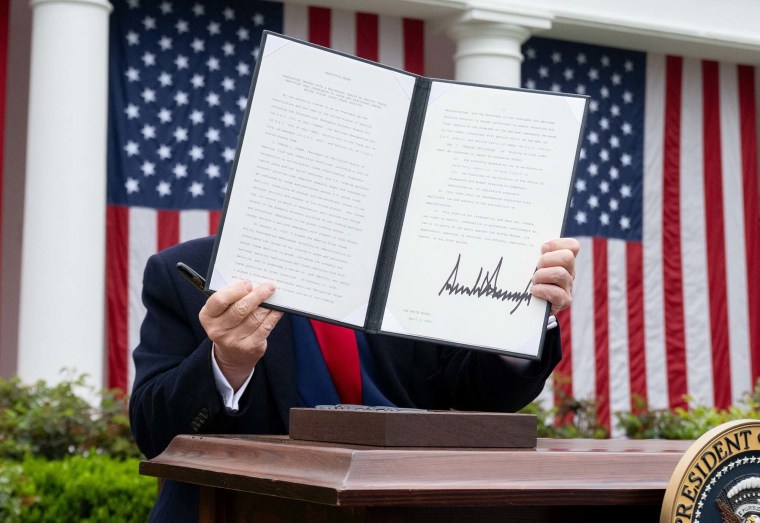
TRUMP’S Bold Trade Shock Rocks Markets, Sparks Fear And Hope
— President Trump is set to announce tough new tariffs this week. His unpredictable style keeps Wall Street and America’s allies on edge. The latest 25% tariff on cars from Europe and Mexico caused the biggest stock market drop since 2020.
Elon Musk, a vocal Trump supporter, is stepping up his political game in Wisconsin. At a Green Bay event, Musk plans to give million-dollar checks to two men fighting activist judges. This move puts him front and center in the state’s Supreme Court race.
Inside the Pentagon, sources say there’s chaos as leaders scramble to keep up with Trump’s aggressive trade and immigration push. Despite distractions at home and abroad, Trump keeps pressing forward with his agenda.
While Biden battles lawsuits in courtrooms across the country, Trump faces legal fights of his own. With both sides under fire, Americans are left wondering what comes next as markets swing wildly and politics heat up.
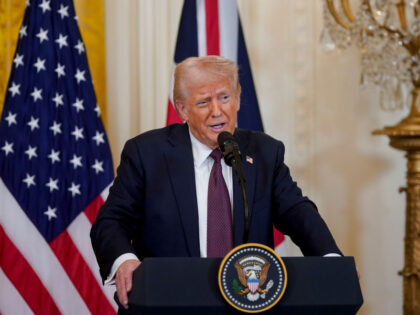
US-UK TRADE DEAL "Highly Likely": Vice President Vance’s Bold Prediction
— A trade deal between the United States and the United Kingdom is “highly likely,” according to Vice President JD Vance. In an interview with UnHerd, Vance shared his optimism about a mutually beneficial agreement. He noted President Trump’s fondness for the UK, which shapes ongoing trade discussions.
The UK was placed on Trump’s global tariff minimum due to its balanced trade relationship and Trump’s personal affinity for the nation. Washington is actively pursuing a deal with Britain, emphasizing cultural ties and shared heritage. Both Trump and Vance proudly acknowledge their British roots, contrasting previous administrations’ anti-British sentiments.
Vance’s comments align with reports prioritizing trade deals with nations like the UK, Australia, South Korea, and Japan — focusing on Asia but including Anglo allies. This focus may disappoint other nations eager for deals after Trump’s tariff announcements. Countries already negotiating may benefit more from these upcoming agreements.
Vance contrasted the UK’s reciprocal trade relationship with Germany’s export-heavy approach to the U.S., noting challenges American businesses face in Germany. The U.S.-UK relationship remains strong amid these negotiations, highlighting cultural affinities and historical connections as key factors in advancing talks.

Trump’s TRADE Policies SPARK Dollar Hedge Surge to 5-Year High
— Demand for hedging against a potential decline in the US dollar has surged to a five-year high. Traders are reacting to the Trump administration’s tariff policies, which they believe could weaken America’s economic strength. This uncertainty has prompted investors to seek protection against possible currency fluctuations.
Meanwhile, gold prices have retreated from record highs after initially climbing due to confusion over Trump’s trade agenda. The precious metal was seen as a safe haven amid market volatility but faced selling pressure as traders reassessed their positions. The US dollar’s resilience also contributed to gold’s pullback from its peak of $3,245.
In other financial news, spot Bitcoin ETFs have seen significant withdrawals amid ongoing trade tensions, indicating a move away from riskier assets. Over $713 million was pulled out in just one week, reflecting investor caution during uncertain times. Additionally, Nvidia shares dropped 25% from their 52-week high despite an initial surge following Trump’s announcement of a temporary pause on tariffs.
The Bank of Thailand plans new regulations holding financial institutions accountable for losses due to call center scams. These measures aim to enhance customer protection and ensure service providers share responsibility if they fail regulatory standards. This move underscores global efforts to tackle technology-related financial crimes and protect consumers’ interests in an increasingly digital world.

TRUMP’S Fiery Blame: Past Presidents’ ‘Stupid’ China Trade Deals Exposed
— During an Oval Office event, TRUMP criticized former presidents for mishandling trade relations with CHINA. He stated, “I blame the people sitting … right behind this desk or another desk — you get your choice of seven.” Trump accused them of being “stupid, incompetent, or not having courage.”
Trump traced the trade imbalance to the World Trade Organization (WTO), claiming it was controlled by China. He argued that past leaders allowed unfair agreements due to incompetence or corruption. “They were stupid people, maybe corrupt,” he remarked.
He emphasized that other countries also exploited the U.S., citing Japan as an example. Trump said he reviewed past trade deals during his first term and found them unfavorable. “How could anybody agree to this stuff?” he questioned, blaming previous administrations for allowing such deals.
Trump’s comments reflect his ongoing criticism of predecessors and highlight his focus on renegotiating international agreements to benefit America more fairly. His remarks resonate with those who prioritize strong leadership in international trade matters.

Video
TRUMP’S Bold Trade WAR Shock Leaves Wall Street Reeling
— Wall Street took a hit Friday after Donald Trump warned of new tariffs, including a 50% tax on European goods and a possible 25% tariff on iPhones made outside the U.S. The S&P 500, Dow, and Nasdaq all dropped over 2% for the week. Big tech stocks led the slide, with Apple dropping as much as 3%. Deckers Outdoor tumbled nearly 20%.
Many businesses are now holding off on yearly forecasts because of Trump’s tough talk on tariffs. The CBOE Volatility Index jumped to its highest level in two weeks, showing just how uneasy investors feel right now.
European markets also sank after leaders threatened $108 billion in retaliatory tariffs if talks with Washington fail. Trump’s strong stance comes while companies are already battling inflation and supply chain problems.
Analysts say Trump is “turning up the temperature” just when Wall Street wants calm. With Memorial Day weekend coming up and no deal yet, America’s economic future looks uncertain for now.
